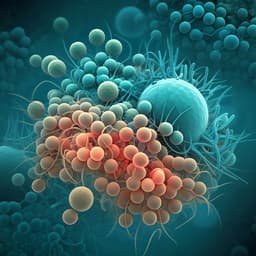
Medicine and Health
Triacylglycerol synthesis enhances macrophage inflammatory function
A. Castoldi, L. B. Monteiro, et al.
This groundbreaking research by Angela Castoldi and colleagues reveals that the development of lipid droplets in foamy macrophages plays a critical role in inflammatory response. The study uncovers how Toll-like receptor agonists induce an increase in triacylglycerol-rich lipid droplets, enhancing the macrophages' phagocytic capacity and inflammatory mediator production, offering new insights into disease mechanisms.
Playback language: English
Related Publications
Explore these studies to deepen your understanding of the subject.







